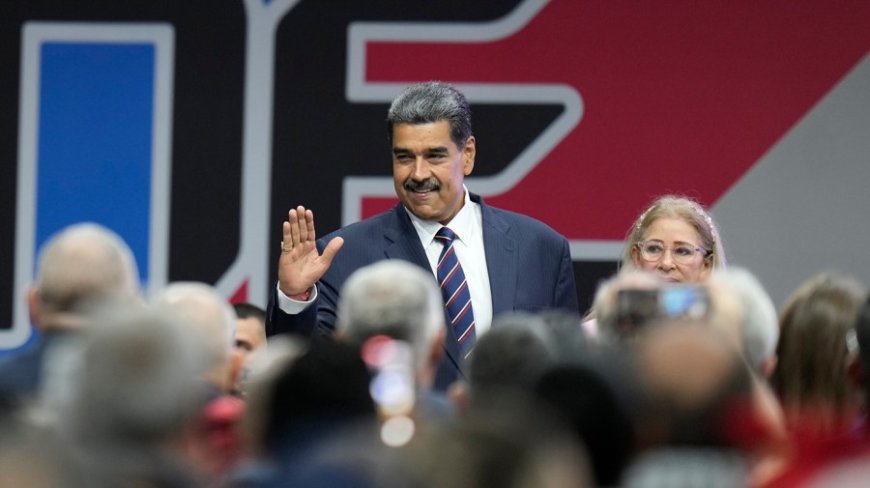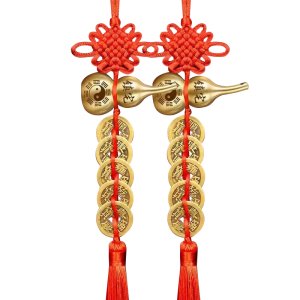US, allies demand Maduro show his election receipts in Venezuela
The U.S. and other democracies in the hemisphere are facing a high-stakes test on how they'll respond to Venezuelan President Nicolás Maduro's claim of reelection victory amid widespread accusations of fraud. The Biden administration is so far keeping its powder dry but has expressed serious concerns that the published results do not accurately reflect the...

The U.S. and other democracies in the hemisphere are facing a high-stakes test on how they'll respond to Venezuelan President Nicolás Maduro's claim of reelection victory amid widespread accusations of fraud.
The Biden administration is so far keeping its powder dry but has expressed serious concerns that the published results do not accurately reflect the will of the Venezuelan people.
“It's absolutely critical that every vote is counted fairly and transparently, that election officials immediately share information with the opposition and independent observers without delay, and that the electoral authorities publish a full detailed tabulation of votes,” said John Kirby, the White House National Security Council communications adviser.
“We're going to hold judgment until that time; we in the international community are watching, and we will respond accordingly.”
The wait-and-see approach is in part a product of Maduro’s stranglehold on power in the South American country, with a tight-knit regime showing few, if any, cracks in its power structures.
But it’s also a recognition that not many palatable options exist to tighten the screws on Maduro from abroad.
The Biden administration had worked ahead of the election to verify safeguards against fraud at the polls, touting progress in getting Maduro to agree even to permit opposition candidates and allow election observers in the country. The data collected and the testimonies from the opposition are viewed as key in building the case for any actions that may be imposed against Maduro if his loss is proven.
“You've seen leaders and foreign ministers from around the world make statements of concern that this process needs to be more transparent and unwillingness to accept that Maduro would simply be ratified in his position without at a minimum much greater transparency,” a senior administration official told reporters Monday.
“That means that there is an international consensus moving forward that would have collapsed if it were not for the actions that we have taken. And it is clear at a minimum to the Maduro side, I would argue, that a large portion of the population is seeking change. And the numbers that they have released at a minimum don't reflect the intensity of that desire for change. So I would argue that we're at a much better position now than we were three years ago.”
The Venezuelan national electoral council (CNE) declared Maduro the winner, but it has yet to publish official election results, which were automatically generated in each polling station.
International observers and the opposition have expressed confidence in the Venezuelan polling system itself: Digital polling machines tally votes and produce a paper version of each vote and a final paper record of the day’s vote totals at each polling station.
Neither the CNE nor Maduro have produced the receipts, but opposition observers claim to have the records from at least 40 percent of stations.
Those records show opposition candidate Edmundo González with about a 70-30 lead over Maduro.
“It’s simply not mathematically possible that Maduro can prevail in an election with González having won 7 in 10 votes in the 40 percent of voting tabulations to which the opposition had access,” said Jason Marczak, vice president and senior director of the Atlantic Council's Adrienne Arsht Latin America Center.
Biden administration officials highlighted the need for Maduro to show his math before crowning a winner, and the European Union took a similar position.
Though Maduro’s win was quickly recognized by Venezuelan allies including Cuba, Russia and Iran, regional leaders with some affinity for Maduro stopped short of joining that parade in an embarrassment for the Venezuelan regime.
Brazilian President Luiz Inacio Lula da Silva said in a statement that publication of the paper trail is “an indispensable step for the transparency, credibility and legitimacy of the election result.”
Colombian President Gustavo Petro didn’t immediately issue a statement, but the Colombian Foreign Ministry issued one saying it was “awaiting the disclosure of the election results by the National Electoral Council of Venezuela” and added, “The counting of votes must be done with full guarantees for all sectors.”
Colombia’s Foreign Minister Luis Gilberto Murillo issued a statement with more urgency. “We call for the total vote count, verification and independent audit to proceed as soon as possible,” he wrote in a post on social platform X.
Though the international community has stopped short of calling Maduro’s actions fraudulent, the Venezuelan opposition is content with the global response so far.
“We understand the international community, we understand the subtle approach and the idea of going step by step and building consensus. For us, it's really important to keep everyone in the page that we are seeing until now, having governments like the Brazilian government, like the Colombian government, like the Chilean government, having the Latin American region being the first one talking and being the first ones speaking about election integrity and demanding and asking for the people's will to be respected and the results to be published at the voting station level,” Miguel Pizarro, the opposition’s representative to the United Nations, told a panel organized by the Atlantic Council.
“I appreciate the U.S. effort and the U.S. engagement, and I strongly believe that what the region is doing is a real difference to what we had in the past. This is not — the regime cannot do the old ‘imperialism’ narrative, that this is something that they want to impose from the biggest countries or the biggest economies. This is the world. This is the left, this is the right, this is the center.”
Stateside, condemnation came from all sides, pushing for Maduro to show the receipts.
A motley, bipartisan and bicameral group led by Sen. Marco Rubio (R-Fla.) released a statement Monday afternoon openly saying “dictator Nicolás Maduro has once again stolen a presidential election.”
The statement was joined by Sens. Bill Cassidy (R-La.), John Kennedy (R-La.), Michael Bennet (D-Colo.), Peter Welch (D-Vt.), Rick Scott (R-Fla.), Pete Ricketts (R-Neb.), John Cornyn (R-Texas) and Tim Scott (R-S.C.) and Reps. Carlos A. Gimenez (R-Fla.), Maria Elvira Salazar (R-Fla.), Ruben Gallego (D-Ariz.), Chris Smith (R-N.J.), Debbie Wasserman Schultz (D-Fla.) and Mario Diaz-Balart (R-Fla.), as well as Puerto Rico Resident Commissioner Jenniffer González-Colón (R).
“The Maduro dictatorship is experiencing an internal fracture, and members of the dictatorship know their status quo, which is filled with incompetence, is no longer sustainable,” read the statement.
“Let there be no doubt: the countries and international organizations backing this fraud of unimaginable proportions must be held accountable, as should members of the narco-regime and its ‘National Electoral Council.’”
Maduro’s power structures are increasingly isolated, scaring off some of its few allies in the democratic world.
“They're sort of shooting themselves in the foot by prolonging and deepening their legitimacy crisis, basically their illegitimacy in electoral terms. They set this election in order to legitimize their government. They promoted this election the last two years as a way to establish and set government into a more status quo and establishment agenda, and what they have actually managed to do is to further their isolation,” said Guillermo Aveledo, a professor at the Universidad Metropolitana de Caracas.
But Maduro may not need allies outside his government.
“I'm not saying they cannot get away with this. I'm saying that they lost their actual purpose for this election,” Aveledo said.
And the Chávez-Maduro regime is motivated both by its own longevity in the face of international opposition and by the fact that the government’s top brass has no Plan B.
“Everybody was kind of waiting for something to happen before the election, as they usually would. They would cancel the election, they would cancel the candidate. They didn't. They went on with it,” said Dany Bahar, associate professor at Brown University's Watson Institute.
“I think the impression was not that this was going to be an obvious win [for the opposition]. I mean, they would find a way to turn it around. You have too much to lose, right? Yeah, everything to lose.”
What's Your Reaction?





















































